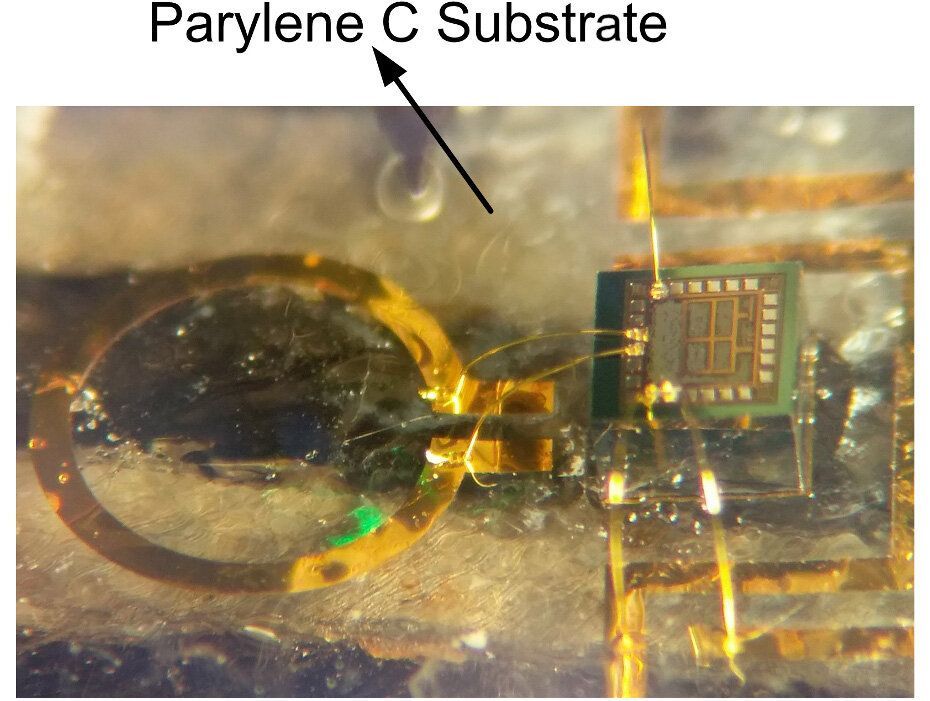Purdue University innovators are working on inventions to use micro-chip technology in implantable devices and other wearable products such as smart watches to improve biomedical devices, including those used to monitor people with glaucoma and heart disease.
The Purdue team developed a fully implantable radio-frequency transmitter chip for wireless sensor nodes and biomedical devices. The research is published in the journal IEEE Transactions on Circuits and Systems II. The transmitter chip consumes lowest amount of energy per digital bit published to date.
The transmitter works in a similar fashion to communication technology in mobile phones and smart watches, but the Purdue transmitter has an unprecedented level of miniaturization and low-energy consumption that it can be implanted into an eye to monitor pressure for a glaucoma patient or into another part of the body to measure data related to heart functions.
